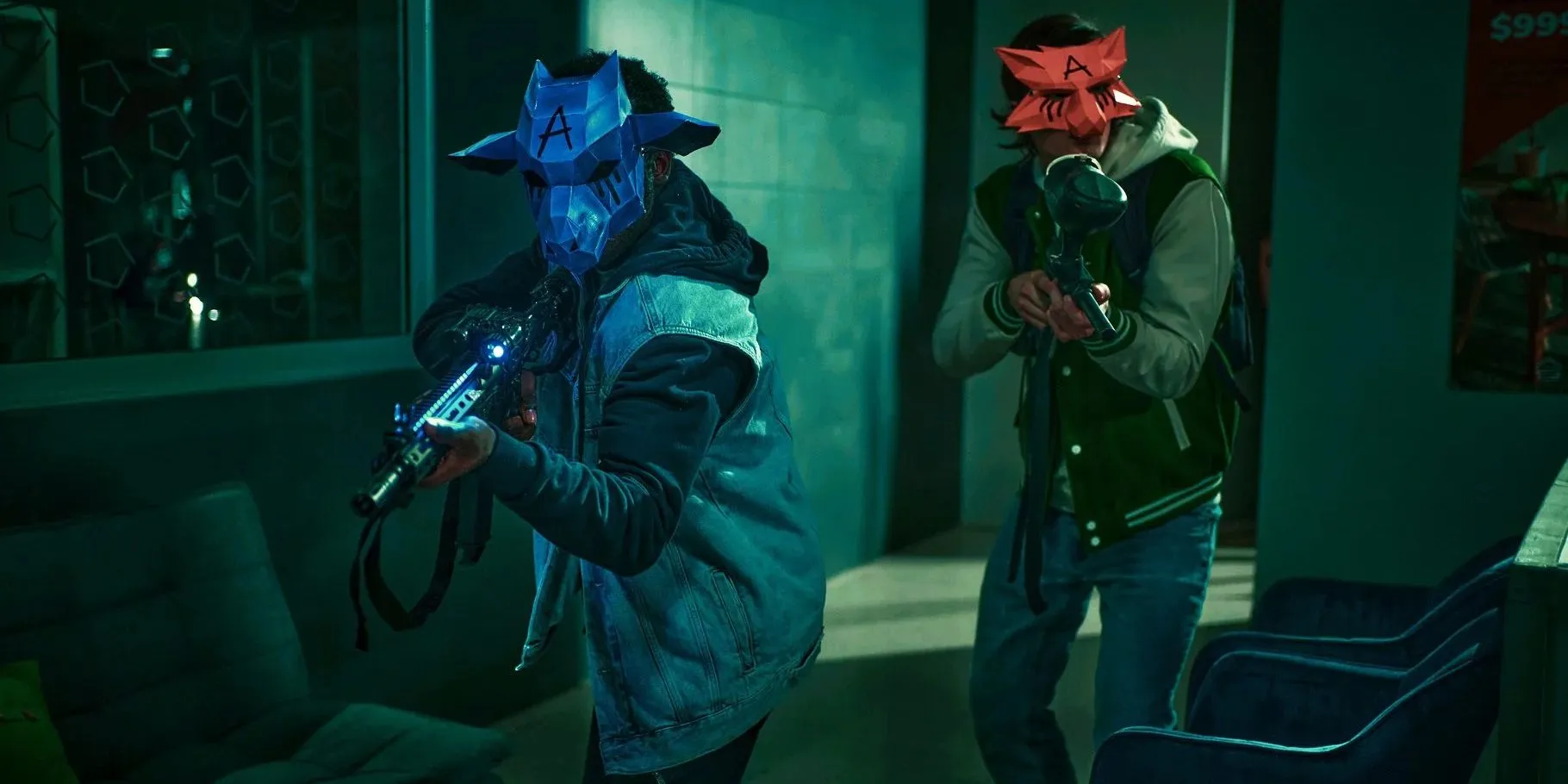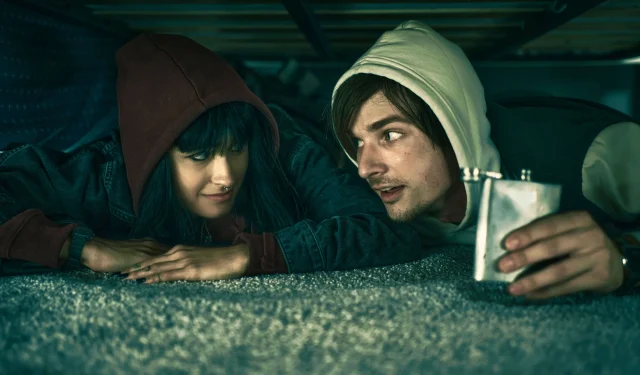Wake Up presents an intriguing premise coupled with impressive visuals. However, the film ultimately falls short in delivering a compelling horror narrative and effectively conveying its activism message. While it boasts a higher level of polish compared to many indie films, the shortcomings in acting, uneven plot progression, and weak storytelling dilute its potential impact.
The storyline revolves around a band of animal rights activists targeting a significant furniture retailer for its detrimental environmental practices. What begins as a seemingly harmless protest spirals into chaos when an agitated night security guard, obsessed with hunting, begins to exact his fury upon the activists. Although it promises an engaging tale, the film descends into a chaotic experience that, despite its bloody visuals and moments of charm, lacks coherence.
Stunning Visuals Set the Stage for Wake Up

Horror films often thrive on limited budgets, relying on practical effects to create an authentic atmosphere. Wake Up manages to leverage its modest resources effectively, showcasing some innovative elements that contribute to a unique visual style. This approach enhances the overall viewing experience, providing a notable aesthetic that is both clean and thoughtfully constructed.
However, despite these artistic successes, the film struggles to maintain audience engagement due to its thin narrative. The antagonist, rather than being a menacing figure, comes across more as a confused individual caught in distressing circumstances. The activists, intended to embody the role of noble heroes, fail to resonate with viewers, as their actions—vandalizing property and intimidating others—undermine their perceived virtue.
Narrative Confusion in Wake Up’s Storytelling

While themes like social activism, animal rights, exploitation, and corporate greed could serve as compelling foundations for a horror film, Wake Up fails to fully develop these concepts. The film had the potential to evoke tension and instill hope for the protagonists’ survival, but instead, it presents a half-formed narrative lacking depth and cohesion.
The title itself hints at dual meanings: it urges both the antagonist to embrace primal instincts and the audience to acknowledge the grave implications of extensive deforestation on wildlife. Yet, the film meanders aimlessly for its brief runtime of 80 minutes, ultimately leaving viewers with the impression that it lost clarity in its storytelling direction. A more thorough exploration of character motivations and plot developments could have fostered a more impactful narrative.
Despite its striking visuals and the opportunity for meaningful commentary, Wake Up results in an unsatisfying experience due to lackluster performances and a disjointed storyline. The film’s potential remains tantalizingly out of reach, offering a visual treat that fails to mask its storytelling deficiencies.


